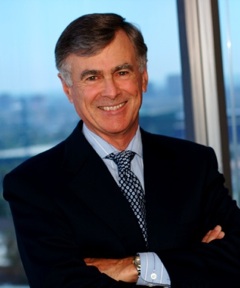
Today I have the pleasure of interviewing Russell Bishop, currently Editor-at-Large for the Huffington Post and founder of Bishop & Bishop, a consulting and coaching company. Russell is the author of numerous articles on the power of choice and awareness, and has two books in development. An expert in personal and organization transformation, Russell has coached leadership teams, entrepreneurs, and CEO’s in 34 countries around the world. He has lectured for executive MBA programs at UCLA, University of Texas and Washington University. Russell received a Master’s degree in Educational Psychology from the University of California and currently resides in Santa Barbara, California.
I’m glad that my husband Eric didn’t overhear our conversation, because Eric has been after me for months to sort through my e-mails and delete the ones I don’t need. At one point Russell asked me how many messages I have in my e-mail inbox. I couldn’t find the number. Finally, I just started adding up all the e-mails from my five accounts, and I told him the figure was around 70,000.
He laughed out loud.
“What?” I said, “Is that a lot?”
At any rate, I am in dire need of some time-management and organizational coaching, and I have always enjoyed Russell’s posts on The Huffington Post. So here is to share some of his organizational tips with you!
Therese: In your post “Is Multitasking Good For You?” you explain the difference between multitasking and multi-goaling. The former leads to half-tasking, which is not recommended. How do we avoid half-tasking?
Russell: I think the first thing we need to do is to focus on the purpose and value of what we are doing. Most people are distracted by what’s right in front of them. They get an e-mail, so they read it. Then they reach for something and find a note that they forgot to follow up on, and so forth. They see the thing that’s right in front of them. And they do it, without a lot of thought.
Therese: So you are saying we need to employ the four-quadrant system of time management that Stephen Covey presents in his book, “The Seven Habits of Highly Successful People,” about distinguishing urgent from important?
Russell: Precisely. That’s a classic formula – urgent versus important – that helps a person give the appropriate attention to something–to assess its value–so that the non-urgent matters don’t become urgent. Because the main gripe I hear from my clients is that they are constantly fighting fires. I tell them, “Don’t be a corporate arsonist.”
Therese: Sounds good, but how do you do that?
Russell: By operating a little more like fire department. Can those guys afford to have a flat tire or mechanical problem with the truck? No. Lives depend on their showing up without a hitch. So they take all the necessary precautions for them to be prepared. They get the truck maintained. They run through the appropriate training.
Therese: I’m with you, but how does that translate into managing time better?
Russell: I think in order not to be extinguishing fires in your personal and professional life you need to 1. Get a plan, 2. Engage, and 3. Get it done. You assign value to each task, and you decide how to execute, so that what’s left undone doesn’t combust and cause a huge problem.
Therese: Okay, so when you get an e-mail or someone asks you to do something, how do you implement this fire-department plan?
Russell: I have a series of six questions I ask myself in order to process information.
1. What is this? Is this a piece of information? Is there something I have to do?
2. What action is required? How long will this take? If it’s less than two minutes, can I just do it now?
3. (If it requires more time than two minutes) What value shows up if I do this? What is the impact?
4. Is it worth doing? What are the consequences if I do this, or if I don’t do it?
5. Is this my responsibility, or is this for someone else? Who is responsible for managing this?
6. Does it have a time deadline? Does it need to be done on a certain date? And if it’s not my responsibility, do I need to follow up?
Therese: What would you say is the biggest mistake we make in managing our time?
Russell: I think we always need to make sure that what we are doing is tied to a meaningful goal, and in that way we assign personal integrity to every task.
To read more Beyond Blue, go to http://blog.beliefnet.com/beyondblue, and to get to Group Beyond Blue, a support group at Beliefnet Community, click here.
To subscribe to “Beyond Blue” click here.
![]()

